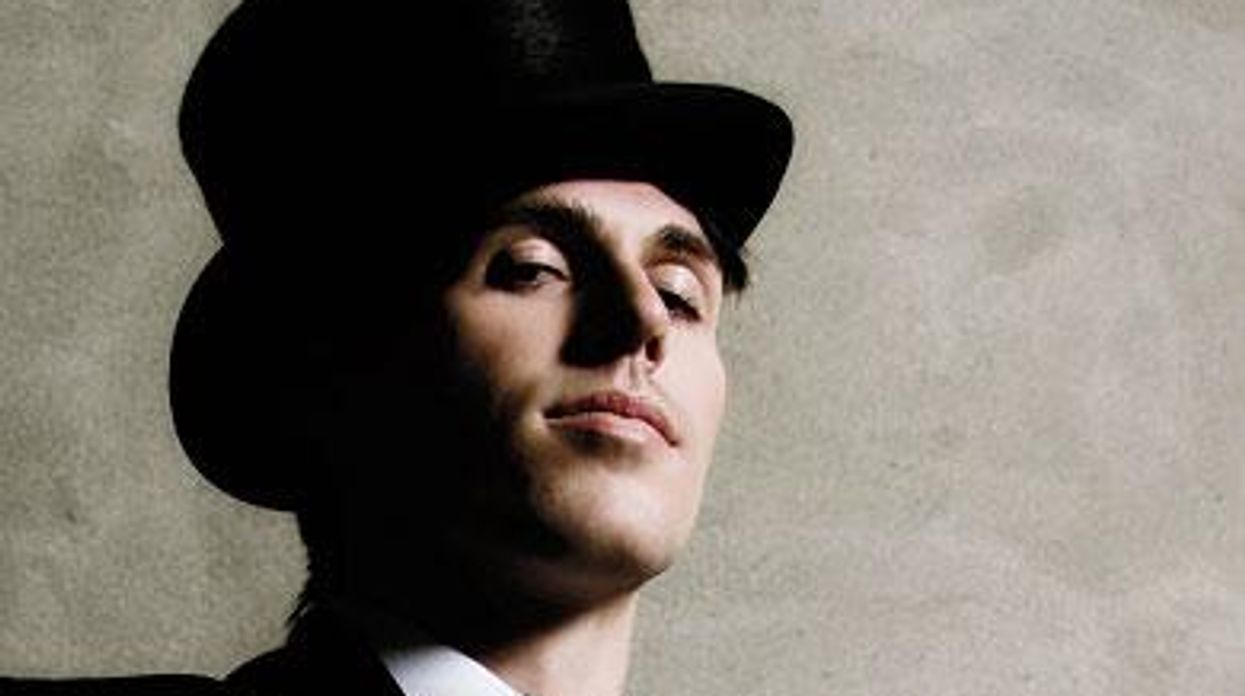
An unexpected Grammy nomination could catapult Sam Sparro into household-name territory.
January 05 2009 12:00 AM EST
By continuing to use our site, you agree to our Privacy Policy and Terms of Use.

An unexpected Grammy nomination could catapult Sam Sparro into household-name territory.
The recording academy unveiled its nominations for the 51st Annual Grammy Awards in December -- and for the first time in years, certain nods seemed refreshingly relevant. Yes, critical darlings like M.I.A., Adele, Radiohead, and Kanye West made the list, but it's an out-of-the-blue nomination in the Best Dance Recording category that's particularly striking. Among the batch of formidable contenders -- which includes Rihanna, Madonna, Daft Punk, Hot Chip, and breakout pop star Lady Gaga -- is a flashy, Sydney-born gay singer-songwriter who is relatively unknown in the United States: 26-year-old Sam Sparro, who scored a nomination for his propulsive electro-funk single "Black and Gold."
"I was out shopping with friends when I got a text from my label congratulating me on the nomination," recalls Sparro from his Los Angeles home, where he is taking a brief break from touring. "I was like, 'What nomination?' It wasn't something I was considering because there hasn't been a lot of support for the song in mainstream media. I didn't expect people in the Academy to even be aware of it."
Evoking Prince's flamboyant sensuality and the druggy euphoria of Goldfrapp's Supernature, Sparro's slightly distorted cool-kid vocals sail over shimmering synths. The centerpiece of his self-titled debut (released in June 2008), "Black and Gold" should have been last summer's answer to Gnarls Barkley's "Crazy." Yet aside from limited airplay on indie and college radio and some chatter online, the single went practically unnoticed in America, bubbling under the radar for months before it made a cameo on a September episode of Dancing With the Stars. Only then did MTV's Buzzworthy blog and RollingStone.com begin gushing over Sparro.
The single had a considerably different fate outside the United States. Soon after its 2007 release on an EP of the same name, it surfaced on BBC Radio 1, which ultimately led to massive success for "Black and Gold" overseas. The song hit the top 10 charts in Ireland, Australia, and Denmark, and bolted to number 2 on the U.K. singles chart. Before he knew it, the former child actor (and onetime West Hollywood go-go boy) became an international dance-floor phenom. He began touring exhaustively, performed with Mark Ronson, and received five ARIA Award nominations (the Australian equivalent of the Grammy Awards). Both Adele and Katy Perry played acoustic live covers of "Black and Gold," and Lindsay Lohan soon phoned Sparro, expressing interest in collaborating.
Though he is surprised by the explosive success of "Black and Gold" across the Atlantic, Sparro understands the reason for its popularity: It's just plain good. "A lot of people know the song through word of mouth or from the Internet," he explains. "Based on its merit it's gone a long way." So why did it remain a marginal, mostly gay anthem stateside? "I guess radio didn't see it as something that belonged, so it was left to the underground," Sparro says. "But I'm glad it didn't break out in the U.S., because it's given me a chance to breathe here. I think naturally more people will become aware of my music."
The Aussie wunderkind may be the underdog in the Grammy race, but the weighty subject matter of "Black and Gold" sets him apart from the other nominees. The son of a gospel singer, Sparro (born Sam Falson) left Australia at age 10 when his family moved to Los Angeles, where he began honing his vocal skills in his church choir. But after returning to his birthplace in the late '90s, then heading to London to explore the club scene, and eventually ending up back in Los Angeles in 2002, Sparro found himself questioning organized religion. Riding the contagious groove of "Black and Gold" are introspective lyrics addressing his recent existential crisis. "The song is about looking for God and meaning in this big expansive universe and about me trying to find my place in it," he says. "I have no place for religion, but I do believe in God--and believe he or she is in control somehow. I just don't believe the things that happened to me in the last 12 months happened on my own accord. There's something bigger."
If some greater power has a master plan for Sparro, it remains unclear. Though he's very eager to begin work on his sophomore album -- the bulk of which he'll produce himself -- his label has already discussed banking on Sparro's Grammy exposure and re-releasing "Black and Gold" in the United States, a move that could eat up any free time he has for songwriting. Nevertheless, the self-assured, unfiltered free bird -- who has been honest about his sexuality from the start of his career -- intends to roll with the punches. "I operate from a really authentic place," he says. "I have stuff to say -- and you can dance to it too. Anything is possible."
Charlie Kirk DID say stoning gay people was the 'perfect law' — and these other heinous quotes